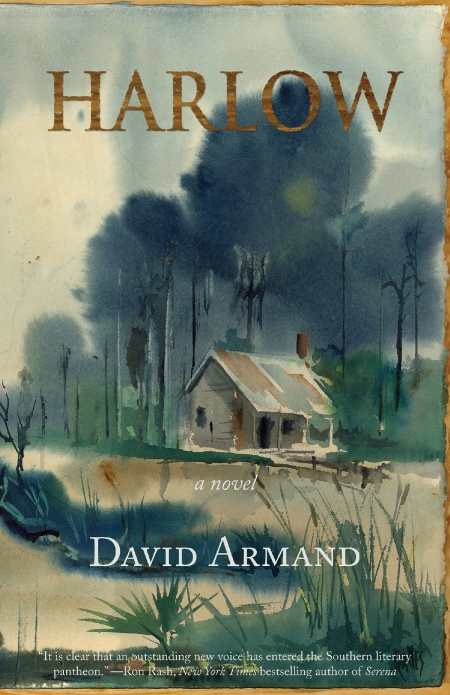Harlow
A distinctly written odyssey details the search for a familial past amidst an environment of violence and depravity.
Set in the harsh backwoods of the American south, Harlow provides a short but narratively complex story of the search for truths of painful living. Tough, rifle-carrying, eighteen-year-old Leslie Cogwin combs the backwoods of Louisiana to find his ex-con father, Harlow. Dreams and flashbacks reveal the Cogwin family’s tumultuous past, including Harlow’s own hardened youth and Leslie’s conception on Bourbon Street brothel row. When the two finally meet, there is little time for relationship rekindling—a violent climax with father and son confronting locals seals their fate in the novel’s final third.
For a novel of such hard human conditions, Harlow‘s prose adds a calming, almost ecstatic element of personal transcendence. The paragraphs often carry on as long passages of dream and memory mixes that eschew conventional grammar or plot, favoring detailed character examination or the surroundings through which Leslie treads, be they a hunter’s blind in a wetland or grungy thugs’ homes. While the reader often has to pay attention to the prose down to the letter, the resulting effect is never crude and helps one see whatever beauty is available in the characters’ entire complex world.
It might be easy to label Harlow a Gothic Southern novel—and it does use certain elements of that tradition. Violence is never far from one’s existence and Leslie’s rites of passage during his search seem to always come through fighting, cigarettes, sex, dealing with a very unconventional family, and, in the end, through the muzzle of a .410 shotgun. By intertwining the experiences of father and son, the personal journeys of Harlow are multidimensional yet believable, with an overall one-hundred-sixty-six page economy that keeps Harlow engaging to the last word.
Interestingly, despite its violent sequences, and as grim as some of the subject matter might be, Harlow’s attention to young characters and its experimental yet accessible style could be attractive to young fiction readers as much as adults. This is a tough line to tread and almost unseen in novels today. But Harlow pulls it off well.
Reviewed by
James Burt
Disclosure: This article is not an endorsement, but a review. The publisher of this book provided free copies of the book to have their book reviewed by a professional reviewer. No fee was paid by the publisher for this review. Foreword Reviews only recommends books that we love. Foreword Magazine, Inc. is disclosing this in accordance with the Federal Trade Commission’s 16 CFR, Part 255.

